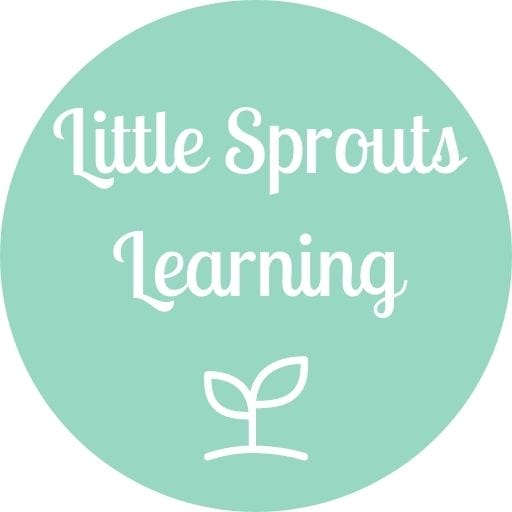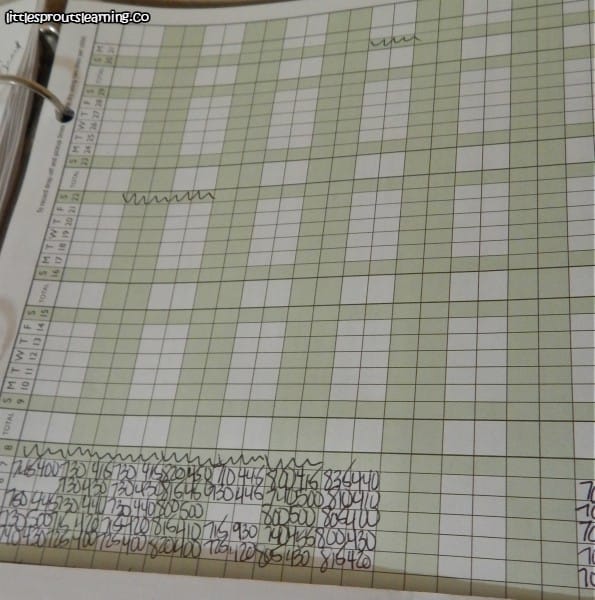Oklahoma Daycare Licensing Regulations for Homes
This page may contain affiliate links. Learn More.
Understanding and following these Oklahoma Daycare Licensing Regulations is essential when running a home daycare in Oklahoma. Providing childcare in Oklahoma is a rewarding and meaningful profession, but it also comes with a high level of responsibility. To ensure the safety, well-being, and proper development of children in daycare programs, the state of Oklahoma has established detailed licensing regulations. These rules are designed to protect children, support caregivers, and promote high-quality early childhood education.

Types of Child Care in Oklahoma
Oklahoma recognizes several types of childcare facilities, each with specific licensing requirements based on size, location, and services offered. The main categories are family child care homes, large family child care homes, and child care centers.
A Family Child Care Home is a daycare operated in a private residence that provides care for seven or fewer children, including the provider’s own children under the age of five. These homes offer a more intimate, home-like setting and are popular with families looking for personalized care.
A Large Family Child Care Home is also operated in a residence but is allowed to care for up to twelve children, including the provider’s own children under five, with the assistance of one or more caregivers. This license type requires additional safety precautions and staff qualifications due to the higher number of children.
A Child Care Center is a facility that is not located in a private residence and provides care for thirteen or more children. These centers usually have multiple classrooms, several staff members, and are subject to the most stringent regulations due to their size and structure.
Licensing Requirements
To operate a licensed home daycare in Oklahoma, providers must be approved and monitored by the Oklahoma Department of Human Services (DHS), specifically through its Child Care Services division. All licensed programs must meet minimum licensing requirements outlined in the Oklahoma Administrative Code. These standards cover staff qualifications, safety procedures, facility conditions, recordkeeping, health practices, and child development expectations.
A provider must submit a detailed application, pass FBI background checks, and allow for site visits and inspections before a license is granted. In addition, facilities must renew their license annually and remain in compliance with ongoing inspections and reviews.

Initial Licensing Process
The first step toward becoming a licensed daycare provider is attending an orientation session offered by DHS. This orientation covers the licensing process, documentation, and an overview of the rules. Once orientation is complete, prospective providers must complete and submit a license application along with supporting documentation.
Applicants must also pass fingerprint-based national background checks for themselves and all individuals over age eighteen who reside in the home or work in the facility. These checks include criminal history, child abuse registries, and sex offender registries. You’re asking yourself if your children need background checks from the FBI? Yes, they do! It’s a totally invasive process for your family.
A licensing specialist will visit the home or center to perform a pre-licensing inspection. They will check for compliance with all applicable regulations, including health and safety standards, equipment and space requirements, emergency preparedness, and documentation. If the facility passes inspection, a six-month permit may be issued, followed by a regular license if compliance is maintained.
Staff and Provider Qualifications
Oklahoma requires daycare providers and staff to meet specific education and training standards to ensure they can provide safe, developmentally appropriate care. For family child care homes, the provider must be at least twenty-one years old, possess a high school diploma or equivalent, and complete required training hours.
Large family homes and centers require caregivers to meet additional qualifications.
All staff must complete orientation training before caring for children and must be certified in pediatric first aid and CPR. Ongoing training is also required, twenty to thirty hours per year for full-time caregivers, to ensure providers stay up-to-date on best practices in child development, health and safety, and program management.

Child-to-Staff Ratios and Group Sizes
Oklahoma regulations require specific child-to-staff ratios to ensure each child receives adequate attention and supervision. These ratios vary based on the age of the children in care and the type of facility. In family child care homes, one provider may care for up to seven children, with limits based on the number of infants or toddlers present. We are allowed to have 2 children under two and 5 over 2. Children under 2 are considered babies. So you can have 2 babies and 5 older kids, or 3 babies and 3 older kids, or 4 babies and 2 older kids, or 5 babies and no older kids. You can also have 1 baby and 6 older kids or 7 kids that are 2 and up.
In large family homes, the maximum number of children is twelve, with two caregivers, again with restrictions based on the age mix.
Maintaining proper ratios is critical for safety, quality of care, and licensing compliance. Exceeding group size or ratio limits can result in citations or even loss of license.
Health and Safety Requirements
One of the central goals of licensing is to ensure a safe and healthy environment for children. Oklahoma daycare facilities must meet detailed requirements for cleanliness, sanitation, hygiene, and health practices.
Back when I started, 30 years ago, it was to support providers as well, so they could succeed, but that is no longer the case. Licensing is only in effect to ensure the safety of kids, and many of them enjoy giving out non-compliances. I find that really sad, but it’s the case in current times.
Handwashing procedures, diaper changing protocols, and sanitation of toys and surfaces must be followed consistently. Children must have access to clean drinking water, nutritious meals, and appropriate rest periods. Immunization records are required for all children in care, and providers must maintain up-to-date health records. If kids are not vaccinated, they must have a state waiver on file.
If you are a childcare provider, you can get access to vaccination records here. You have to set up an account to get started.
Medications can only be administered with written parental permission, and providers must have the medication in the original bottles with the instructions labeled on them, labeled with the child’s name, AND a written permission from parents to administer the medication that includes those instructions. Illness policies must be established to prevent the spread of communicable diseases. Emergency plans, first aid kits, and fire extinguishers are required on-site, and fire drills must be conducted regularly.

Facility and Equipment Standards
Licensed daycare programs must maintain safe facilities. This includes indoor and outdoor spaces, furnishings, and materials designed to support children’s learning and play. You must provide age-appropriate toys, books, learning materials, and physical activity equipment.
Playgrounds must be fenced with a 4-foot fence without holes that a child’s head could fit through and be free of hazards. Indoors, all outlets must be covered, sharp objects secured, and stairways protected by safety gates when used for young children. You must also have any hot surfaces gated off. Sleeping areas must include individual cots or mats for napping, and all bedding must be cleaned regularly.
Heating and cooling systems must maintain comfortable temperatures, and lighting should be sufficient for safety and play. Any time temperatures go below 65 or above 85, you must close. Storage areas for cleaning supplies and hazardous materials must be locked and inaccessible to children.
Recordkeeping and Documentation
Oklahoma regulations require daycare providers to maintain detailed records for each child in care. These include enrollment forms, emergency contact information, immunization records, permission forms, and health histories. Providers must also document daily attendance for themselves and the children, medication logs, incident reports, and child progress notes. If you are on a food program, you must also document attendance and food served for them as well.
Personnel files must be kept for all employees, including background checks, health forms, training documentation, and evaluations. Facility records should include the last 3 inspection reports, monthly emergency drills, and daily menus.
These records are reviewed during licensing inspections and must be stored securely and confidentially. Accurate documentation supports accountability and ensures that caregivers can respond quickly to each child’s needs.
Curriculum and Daily Schedule
While Oklahoma licensing regulations do not mandate a specific curriculum, licensed programs must offer a daily schedule that supports children’s development across all domains, social, emotional, cognitive, physical, and language. Activities should be age-appropriate and include both structured and unstructured play, group time, outdoor play, and rest periods.
A well-balanced schedule includes opportunities for creative expression, literacy activities, science exploration, music and movement, and fine and gross motor development. Providers are encouraged to offer culturally inclusive materials and experiences that support diversity and family engagement.
Lesson plans or activity logs may be required for review by licensing specialists if you are participating in the quality improvement initiative, Oklahoma’s Reaching for the Stars program.
Parental Communication and Involvement
Oklahoma licensing standards emphasize the importance of open communication and collaboration with families. Providers must inform parents of policies, procedures, and any changes to the daycare’s operation. A written handbook is required, covering topics such as illness policies, tuition and fees, arrival and pickup procedures, and discipline practices as well as every form of emergency procedure that may be needed.
Daily communication should be maintained through verbal updates, written notes, emails, texts, or communication apps to keep parents informed about their child’s day. Providers must notify parents immediately in the event of an accident, illness, or emergency.
Parent-teacher conferences, family engagement events, and feedback opportunities help build trust and partnership between caregivers and families. Licensed programs must also provide information about how parents can contact licensing specialists if they have concerns.
Inspections and Monitoring
Licensed child care facilities in Oklahoma are subject to regular inspections by DHS Child Care Services. These visits are unannounced and are conducted to ensure continued compliance with licensing rules.
During an inspection, the specialist may review records, observe staff and children, inspect the facility, and check for adherence to health and safety standards. Any violations are documented, and corrective action plans may be required. Facilities with repeated or serious violations may face license revocation.
In addition to routine inspections, complaint investigations are conducted when DHS receives reports of suspected violations. Providers must cooperate with inspectors and demonstrate a commitment to maintaining safe, high-quality care. Having been through this process, it can be scary, but if you haven’t done anything wrong, it’s likely they will figure that out and clear you. The truth usually prevails.
Just remember, if you have trouble with a parent, keep records and notes on everything. What saved me was printing out all the communication between me and the parents who turned me in. When DHS reviewed them, they realized the parents were ridiculous and the claims were false. It also helped me that my worker was familiar with me and my character, and my records were and are exemplary.
Reaching for the Stars Quality Rating System
Oklahoma’s Reaching for the Stars program is a voluntary quality rating and improvement system (QRIS) designed to recognize and support high-quality child care. Licensed providers can apply for a 1- to 5-star rating based on criteria such as staff qualifications, curriculum, learning environments, and family engagement.
Participation in this program allows providers to receive higher subsidy payments through the Child Care Assistance Program. Many parents seek out star-rated programs as a sign of quality and professionalism.
Providing childcare is far easier and less stressful if you don’t participate in QRIS, I can promise you that. I have done it twice, once for 15 years and now again for the past 3 years, giving it a second chance. I am 100% far higher quality in my program when I don’t participate because the stress of the program is off the charts.
It doesn’t indicate quality at all, it’s a lot of nonsense paperwork. But if you want to do it, you certainly can. There are many different reasons providers want to reach for the stars, and they are all admirable. If you have a reason, go for it. You are more than capable! I have had many reasons to want to do it over the years, but for me, I have regretted it every time.
Sadly, it’s not the program it should be. And Oklahoma’s providers, kids, and parents suffer for that. It’s great in theory, but the execution of it hasn’t been kind or professional, which is typical for DHS in our state. But it’s still there, and it does offer some benefits for providers. So there’s that.
Subsidy and Financial Assistance
Child care providers in Oklahoma may accept child care subsidy payments from DHS to support low-income families. To participate, providers must meet additional requirements and agree to terms set by the DHS subsidy program. Providers receive direct payments from the state based on attendance and family eligibility.
This process is not simple, you must apply, be accepted to apply, then take a test and pass it, as well as turn in additional paperwork. In my experience, DHS was not professional or polite during this process, so it was far more stressful than it needed to be. And they threaten continually to revoke it when they are trying to get providers to comply with certain requests.
My advice is not to accept subsidy if you don’t have to because it’s a lot of headaches that are unnecessary. Once you complete all the requirements, you may be awarded a contract to accept it. You can do it, don’t be discouraged if you want to apply, but just know it’s not pleasant as you go through it. Your kids are worth it, though. Why else would we deal with DHS at all? The kids are worth it. Families are worth it.







